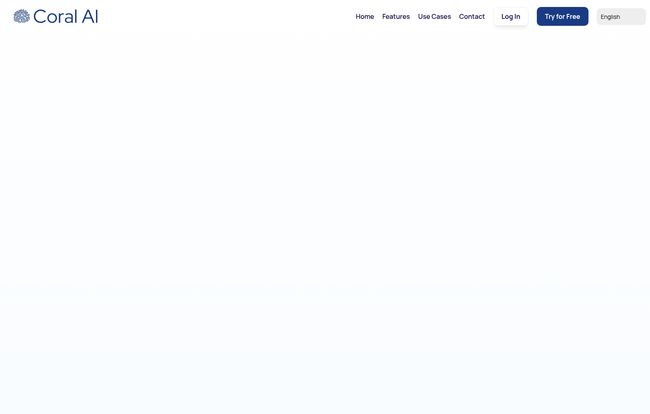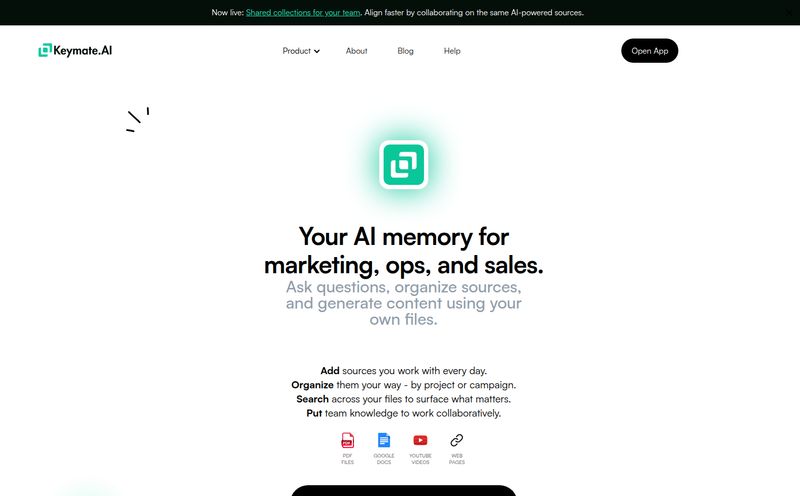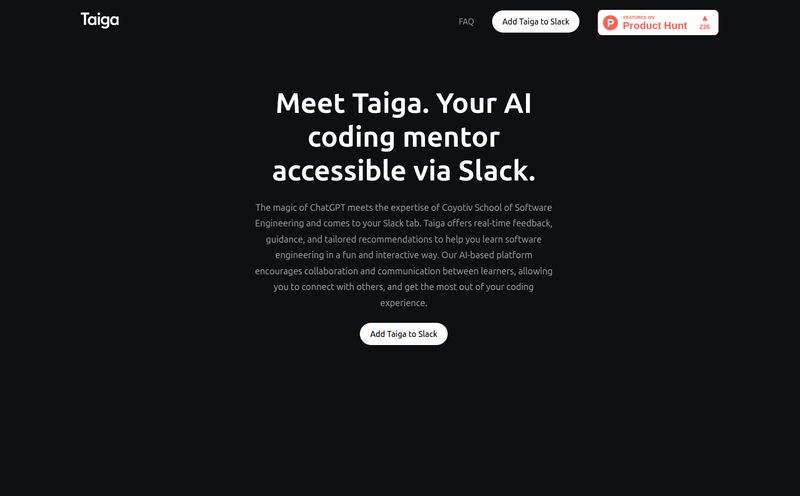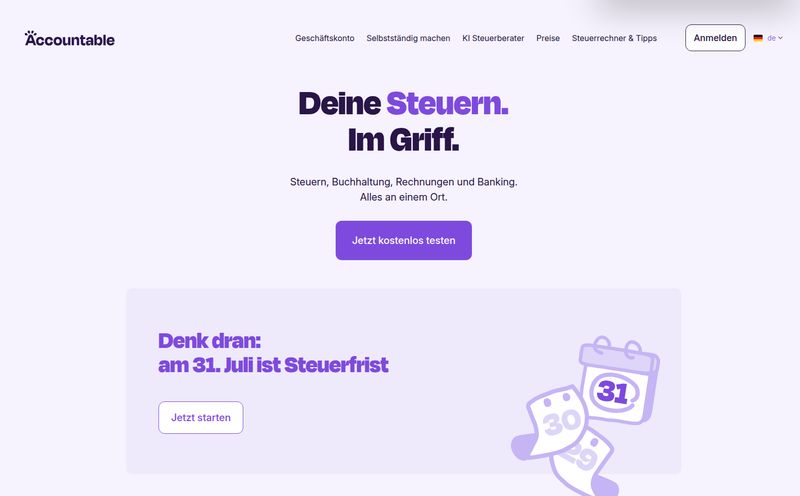If you're in any field that requires research—whether you're an SEO, a student, a lawyer, or a market analyst—you know the feeling. It’s that slow-dawning dread as you look at a folder containing 27 PDFs, three industry reports, and a link to a 90-minute webinar. Your soul just kind of... sighs. We're all drowning in a sea of information, and our job is to somehow build a boat out of all that floating data before we go under.
For years, the solution was more coffee and less sleep. But now, AI tools are popping up left and right, all promising to be our life raft. I’ve seen dozens of them. Some are glorified GPT-wrappers that just rephrase text, while others are genuinely trying to solve the problem. So when I heard about Coral AI, my professional curiosity was piqued. It claims to be an AI tool for summarizing, finding info, and citing sources from documents. But does it actually work? Or is it just another shiny object in the ever-expanding AI universe? I decided to take it for a spin.
What Exactly is Coral AI? (Beyond the Hype)
At its heart, Coral AI is an intelligent document analysis platform. Think of it less like a chatbot and more like a hyper-efficient research assistant. You feed it your documents—PDFs, PowerPoints, even YouTube links—and it helps you digest them. It's not just about getting a simple summary; it's about being able to have a conversation with your documents. You can ask specific questions, find data points, and pull out key information in seconds instead of hours.
It’s designed to tackle that mountain of research I mentioned earlier. Instead of opening 15 tabs and using Ctrl+F until your fingers go numb, you can upload everything into one place and let the AI do the heavy lifting. It supports over 90 languages, which is a pretty big deal for those of us working with international clients or sources. This isn't just a simple trick, it's a serious tool for serious work.

Visit Coral AI
The Standout Features That Actually Matter
Okay, so it talks to PDFs. Cool. But lots of tools do that now. What makes Coral AI stand out from the crowd? After playing around with it, a few things really jumped out at me as being genuinely useful, not just gimmicks.
The Cross-Document Chat is a Game Changer
This, for me, is the killer app. You can upload a whole batch of related documents, tag them as a group—say, "Q3 Competitor Analysis"—and then ask questions across the entire collection. I remember a few months back, I was prepping a strategy deck on the future of local SEO. I had reports from Moz, Ahrefs, Google itself, and a half-dozen industry blogs saved as PDFs. The process of piecing together a coherent narrative from all those sources was a nightmare. I would have loved to just ask, "What are the common predictions for local pack changes in the next 18 months?" and have an AI scan all of them at once. That's what Coral AI does. It synthesizes information across sources, which is a massive time-saver.
Citations That Don't Make You Want to Cry
Anyone who's ever written a research paper or a detailed report knows the unique pain of citations. You find a perfect quote, but you forget which page of which 300-page document it came from. Generic AI tools are notorious for this; they'll give you a great summary but when you ask for the source, they just make something up. It's called "hallucination," and it's a real problem.
Coral AI seems to have tackled this head-on. When it provides an answer from your documents, it also gives you a citation with a clickable page number reference. Clicking it takes you right to the spot in the original PDF. I can't overstate how important this is. It builds trust and makes it easy to verify the information. For students, academics, or anyone in the legal field, this feature alone could be worth the price of admission.
More Than Just PDFs: Taming the Multimedia Beast
The web isn't just text anymore, and our research shouldn't be either. Coral AI gets this. It can summarize YouTube videos, which is fantastic for getting the key takeaways from a long webinar, an interview, or a product review without scrubbing through the whole thing. It also transcribes audio files. Got a recording of a client discovery call or a brainstorming session? Upload the MP3, get a transcript, and then you can start asking it questions. This turns unstructured audio data into a searchable, analyzable asset. That's a powerful shift in workflow.
Let's Talk Brass Tacks: Who is Coral AI Really For?
This isn't a tool for everyone. If you just need to rephrase an email, you're better off with a free tool. Coral AI is built for people who regularly handle large volumes of dense information.
- Students and Academics: This is a no-brainer. Sifting through dozens of research papers for a literature review becomes infinitely more manageable. The accurate citation feature is a lifesaver.
- Market Researchers & SEOs: Hey, that's me! Analyzing competitor strategies, industry trend reports, and even SERP analysis exports is so much faster. It helps you connect dots you might have missed otherwise.
- Legal and Medical Professionals: Imagine being able to quickly query thousands of pages of case law or medical journals. However, a word of caution here: while powerful, AI should be an assistant, not the final word. The stakes are too high for unverified information. Always use that clickable citation to check the source.
- Business Analysts and Consultants: Anyone who needs to digest multiple business reports, financial statements, or PowerPoint presentations to deliver a cohesive strategy will find a ton of value here.
The Not-So-Perfect Bits (Because Nothing Is)
Alright, I'm a professional, but I'm also a skeptic. No tool is perfect, and it's important to be honest about the downsides. Coral AI has a couple of quirks you should know about.
First, the big one listed in their own documentation: It may not always give correct answers. This is the reality of AI in its current state. It's an incredibly sophisticated pattern-matching machine, but it doesn't 'understand' things in teh way a human does. You still need to wear your critical thinking hat. Never, ever, copy-paste AI-generated information into a critical report without first verifying it. Use it to find the needle in the haystack, then check the needle yourself.
Second, the pricing isn't immediately obvious on the main page. I had to click around a bit to find the specifics. This is a minor pet peeve of mine in the SaaS world—just be upfront about it! Also, there's no free plan. While a 'Try for Free' button is visible, it leads to their paid offerings. This creates a barrier for folks who just want to kick the tires. I get the 'you get what you pay for' argument, but a limited free tier is always a great way to win users over.
Coral AI Pricing and Plans
So, what's the damage to your wallet? As I mentioned, you won't find the pricing table splashed on the homepage. From what I can see, they operate on a paid-only model. Typically, tools like this offer tiered subscriptions based on things like the number of pages you can process, documents you can upload, or questions you can ask per month. You'll likely see different plans aimed at individuals, teams, and maybe even enterprise-level users.
My advice? Go to their site and look at the current plans. Think about your actual usage. Are you a student with one big project a semester, or a professional analyst who will use this daily? Your answer will determine which tier, if any, makes sense for you. Don't just buy the biggest plan because it has more features; assess your needs first.
My Final Verdict as an SEO Pro
So, do I reccomend Coral AI? Yes, with a caveat. If your job involves fighting a constant battle against information overload, this tool is a powerful ally. The time you save by using the cross-document search and quick summarization features can be reinvested in what really matters: strategy, creativity, and critical analysis.
For me, the ability to speed up the research phase of content creation and market analysis is huge. Less time digging, more time thinking. The value proposition is clear: you're trading a monthly fee for hours of your time back. For many professionals, that's a trade they'll happily make every single day.
Frequently Asked Questions about Coral AI
- Is Coral AI free to use?
- No, Coral AI is a premium tool with paid subscription plans. While there might be a trial, there is no permanently free tier available.
- How accurate are the summaries and answers from Coral AI?
- They are generally very accurate and well-supported by citations. However, like any AI, it's not infallible. It's always a good practice to use the clickable citations to double-check critical information directly from the source document.
- Can Coral AI handle languages other than English?
- Absolutely. It supports over 90 languages, making it a great tool for international research and working with multilingual documents.
- What makes Coral AI different from a general chatbot like ChatGPT?
- The main difference is its specialization. Coral AI is specifically designed for deep document analysis. Its key differentiators are the ability to search across multiple documents at once and provide verifiable, page-specific citations, which general chatbots often struggle with.
- What file types does Coral AI support?
- It's quite versatile. It can handle PDFs, PowerPoints, audio files (like MP3s) for transcription, and even summarize content directly from YouTube links.
Wrangling Your Research into Submission
In the end, tools like Coral AI represent a fundamental shift in how we work with information. It’s not about replacing human intellect, but augmenting it. It handles the tedious, time-consuming task of finding and collating information, freeing us up to do the actual thinking. If you’re tired of being a human search engine and want to get back to being an analyst, a strategist, or a scholar, then giving Coral AI a look might just be the best decision you make this year. It turns a mountain of data back into what it should be: a source of insight, not a source of stress.
Reference and Sources
- Coral AI Official Website - For the most current information on features and pricing.



